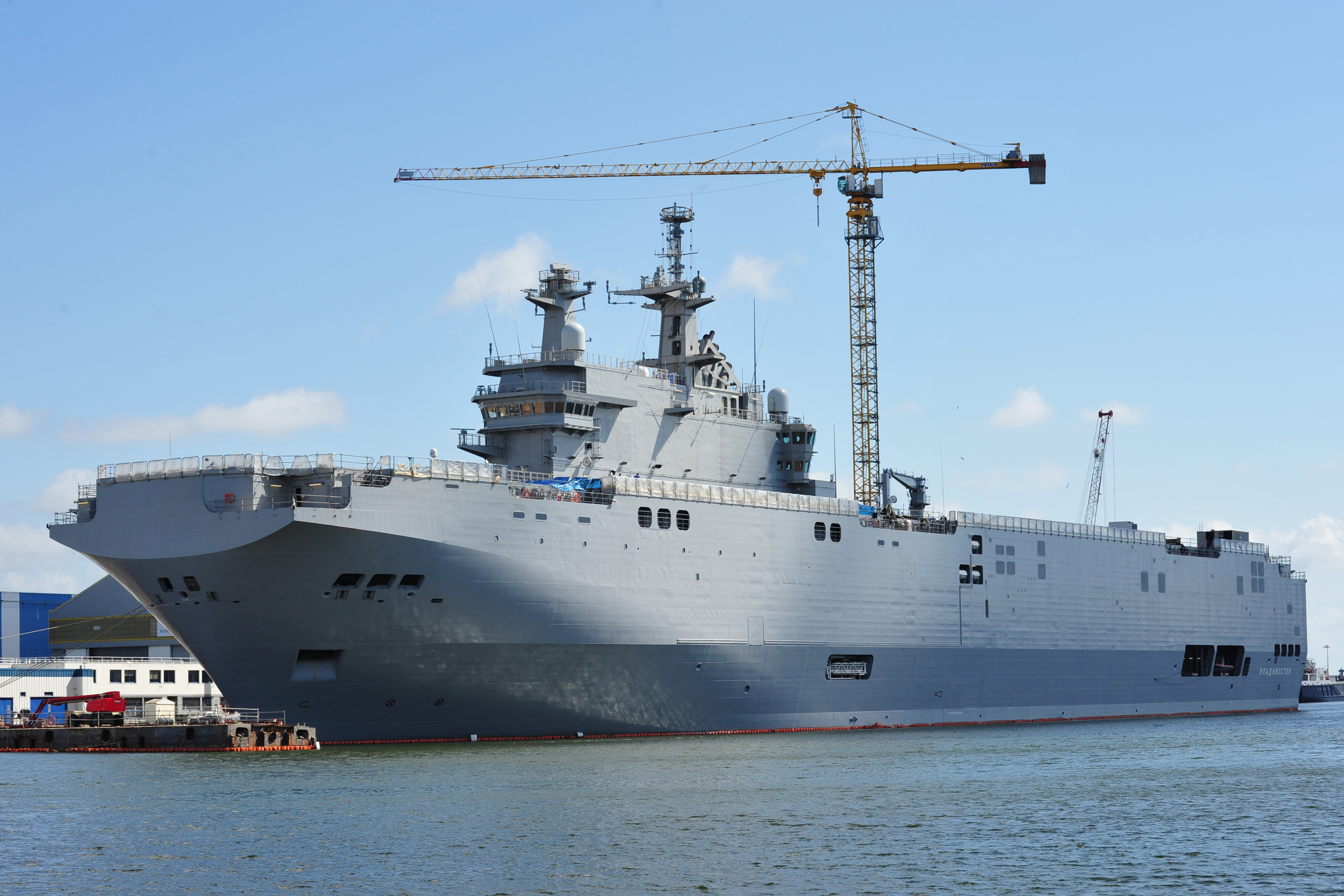
A Wednesday tweet from Russia’s outspoken deputy prime minister — setting the date for France’s delivery of a Mistral-class amphibious warship to Russia — has raised questions over the final fate of the two-ship $1.53 billion deal.
On Wednesday, Dmitry Rogozin tweeted an image of an alleged Oct. 8 letter from French shipbuilder DCNS to the head of Russia’s foreign military sales agency — Rosoboronexport — the delivery of the amphibious warship Vladivostok would occur on Nov. 14, 2014.
“Rosoboronexport received an invitation to transfer the first ‘Mistral’ to Russia on November 14th and to launch the second one,” read the tweet from Rogozin’s account.
Rosoboronexport received an invitation to transfer the first "Mistral" to Russia on November 14th and to (cont) http://t.co/ZxnfJG1JsJ
— Dmitry Rogozin (@DRogozin) October 29, 2014
The letter was allegedly signed by DCNS Surface Ships and Naval Systems Division senior vice president Pierre Legros with a Paris dateline and went on to detail a schedule of the ceremonies.
The French government quickly denied it had reached an accord on the Mistrals with Russia.
“The conditions have not today been met for delivering the [first] Mistral,” Finance Minister Michel Sapin told France’s RTL radio reported The New York Times on Thursday.
France suspended the delivery of the two ships in September following increasing unrest in Ukraine and after intense criticism from allied nations.
“The conditions under which France could authorize the delivery of the first helicopter carrier are not in place,” read a September statement from French President François Hollande.
Sapin went on to tell the radio station, “from a certain point of view things are going better, but there are still concerns. So today, the conditions aren’t met,” reported The New York Times.
DCNS provided a statement in response to Rogozin’s claims to Jane’s Defence Weeky.
“In answer to earlier published information concerning the potential delivery of the first Helicopter Landing Platform [BPC] to the Russian Federation, DCNS states that it is still expeting [sic] the required export authorization to be granted by the French government. For this reason DCNS is not in a position to indicate any date for the hand-over of the ship at the current stage,” reported Jane’s.
Rogozin told Russian state controlled news outlet RIA Novosti on Wednesday that the mechanics of the ship purchase had not changed and the only impediment was the Hollande administration.
“From a technical point of view, the contract is being fulfilled on schedule,” Rogozin said.
“It’s up to President Hollande now to make a political decision.”
Though delivery of the ships have been suspended, limited work on the ship has occurred since Hollande’s September statement.
Vladivostok conducted limited sea trials in September and the 400 Russian sailors sent to Saint-Nazaire, France are still in the country.
Critisim over the Russian Mistrals has festered since the deal was inked in 2011 during the Sarkozy administration.
The ships — based on the French Navy’s 21,000-ton version — are optimized for Russia’s heavier helicopters and operations in the Arctic.
The awkward exchange between France and Russia will ultimately lead to the delivery of the two ships, according to an analysis from Jane’s.
“Rogozin’s mischief making intervention on 29 October, allegedly showing French duplicity behind the statements of a delivery postponement, merely serves to further highlight how awkward this program has become for the French government,” read the Jane’s report.





